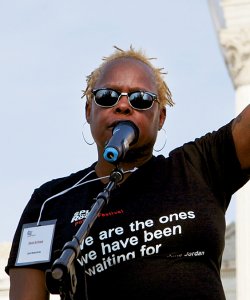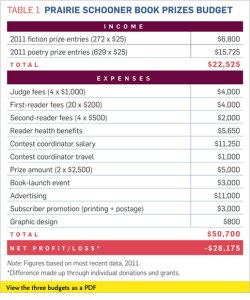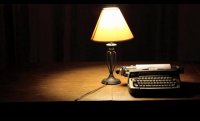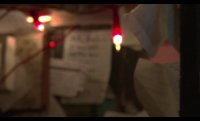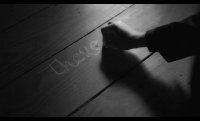To accompany our May/June 2012 issue's feature "Winners on Winning," part of our special section on writing contests, we're posting a selection of mini-interviews with prize recipients on the benefits of their awards and what they learned from winning. The second author in our series is New York City poet and fiction writer Francine Witte.
Witte most recently won the Thomas A. Wilhelmus Chapbook Award (now dubbed the Editor's Fiction Chapbook Prize) from RopeWalk Press in 2010 for a collection of short short stories titled Cold June. Also the author of three other chapbooks of poetry and short fiction—Only, Not Only (Finishing Line Press, 2012), The Wind Twirls Everything (MuscleHead Press, 2009), and First Rain, which won Pecan Grove Press's 2008 National Chapbook Competition—she speaks with us about the hands-down best aspect of winning the Wilhelmus Award and what she'd suggest to writers looking to contests as a means to publication.
How did winning RopeWalk Press's Wilhelmus Chapbook Award change your career, if at all? Were you able to do anything special with the prize money, or did you make any important connections as a result of winning?
When I saw this contest listed in Poets & Writers, and I saw that Pulitzer Prize winner Robert Olen Butler was the judge, my only thought was that this would be a chance to have his eyes on my work. That was all I was really hoping for at that point. I had always thought of him as a master of the short short form. When I was subsequently informed that I was one of the ten finalists, I had to take a deep breath. What if? Of course, I didn't want to become too hopeful. At that point, I did what I suppose many people do: I made a deal with God. I promised that if I were to win, I would give the prize money to my sister, who desperately needed it as her husband had recently suffered a stroke. The news of my winning came in an e-mail with the lead paragraph [containing] the magical words of Robert Olen Butler, who called my take on the short short "brilliant" and said I was a talented writer indeed. I couldn't even breathe. I immediately called my sister and told her the good news, that the money was on its way to her. But to me, the real prize was that beautiful paragraph that I later used as a blurb on the book cover. The exposure that came from the book was amazing. I now had people blogging about me. That was really a thrill. The reviews and comments I received were positive and when you are starting out—in publishing terms—it is very important that you know people are "getting" what you are trying to do. I also had an agent contact me—a first—though he wasn't really able to do much with a collection of short short stories.
Did the award have an effect on the path you've chosen to take in your work?
Just the validation and praise I received from having Cold June win the contest and get published has helped me on those dark days when I wonder what the hell I am even doing. All writers need that. I am a high school teacher, nearing retirement, so I am thinking that when I do have enough time to write that novel, I would probably structure it in short shorts. Winning the prize and hearing the comments from people I would not have normally have heard from has told me to keep true to the style in which I write.
What advice do you have for writers looking to contests as a way to get their work into the world?
Contests are an amazing way to get your work into the world. Winning a contest definitely raises your profile as a writer and certainly adds much to your cover letter. It's a concrete credit that people do respond to. When choosing which contests to enter, you'll want to choose carefully, though. Entering contests is expensive and time-consuming. You also want to make sure that what you're submitting really is your very best work. Choose a few good ones, contests you generally think you might have a good chance of winning, and avoid a scattershot method. Like any other submission, know the journal you are sending your work to. That will save you lots of time and money.
